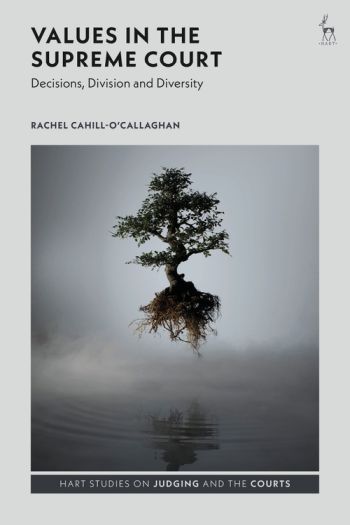
This book examines the significance of values in Supreme Court decision making. Drawing on theories and techniques from psychology, it focuses on the content analysis of judgments and uses a novel methodology to reveal the values that underpin decision making. The book centres on cases which divide judicial opinion: Dworkin's hard cases 'in which the result is not clearly dictated by statute or precedent'. In hard cases, there is real uncertainty about the legal rules that should be applied, and factors beyond traditional legal sources may influence the decision-making process. It is in these uncertain cases – where legal developments can rest on a single judicial decision – that values are revealed in the judgments. The findings in this book have significant implications for developments in law, judicial decision making and the appointment of the judiciary.